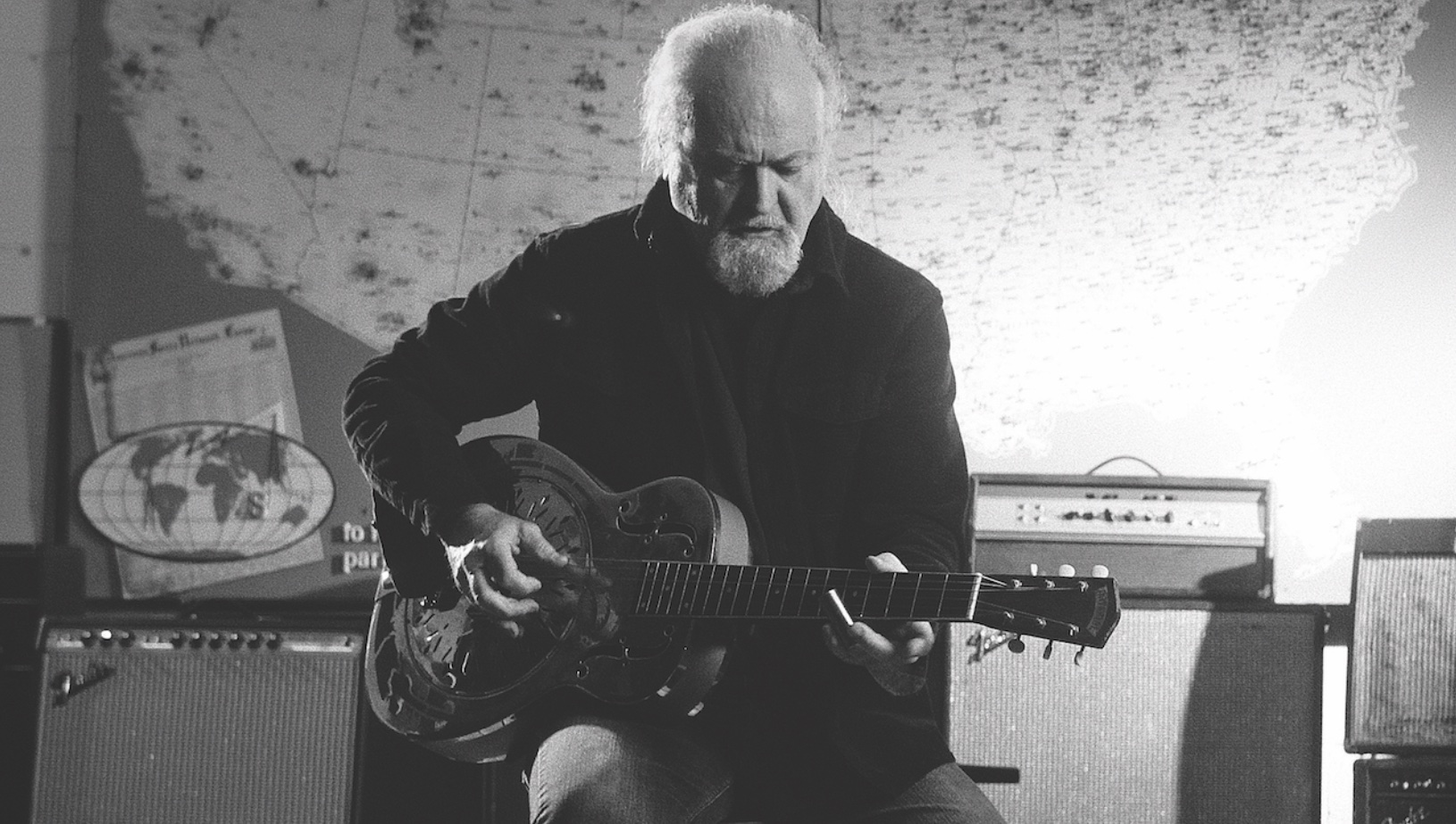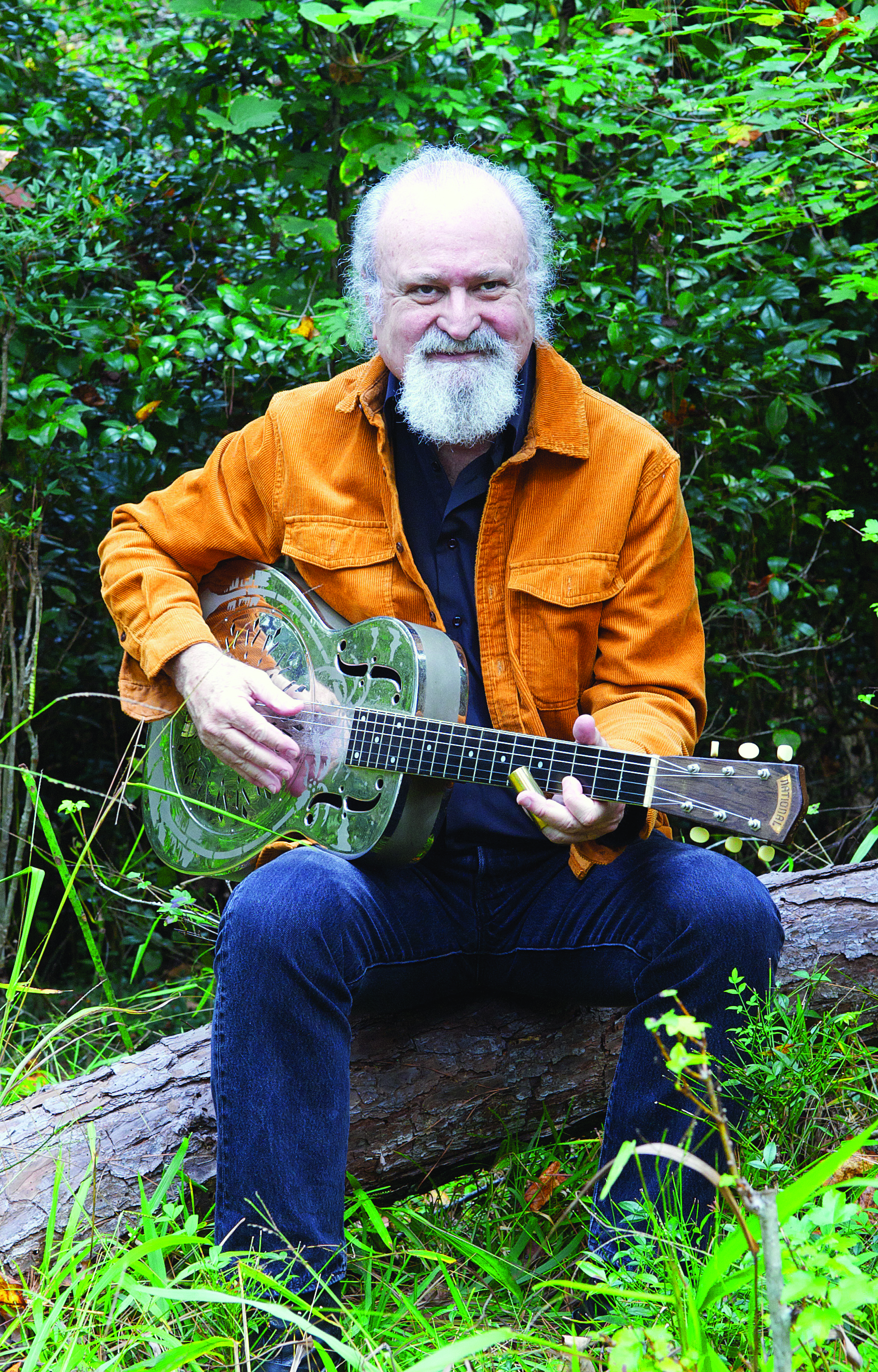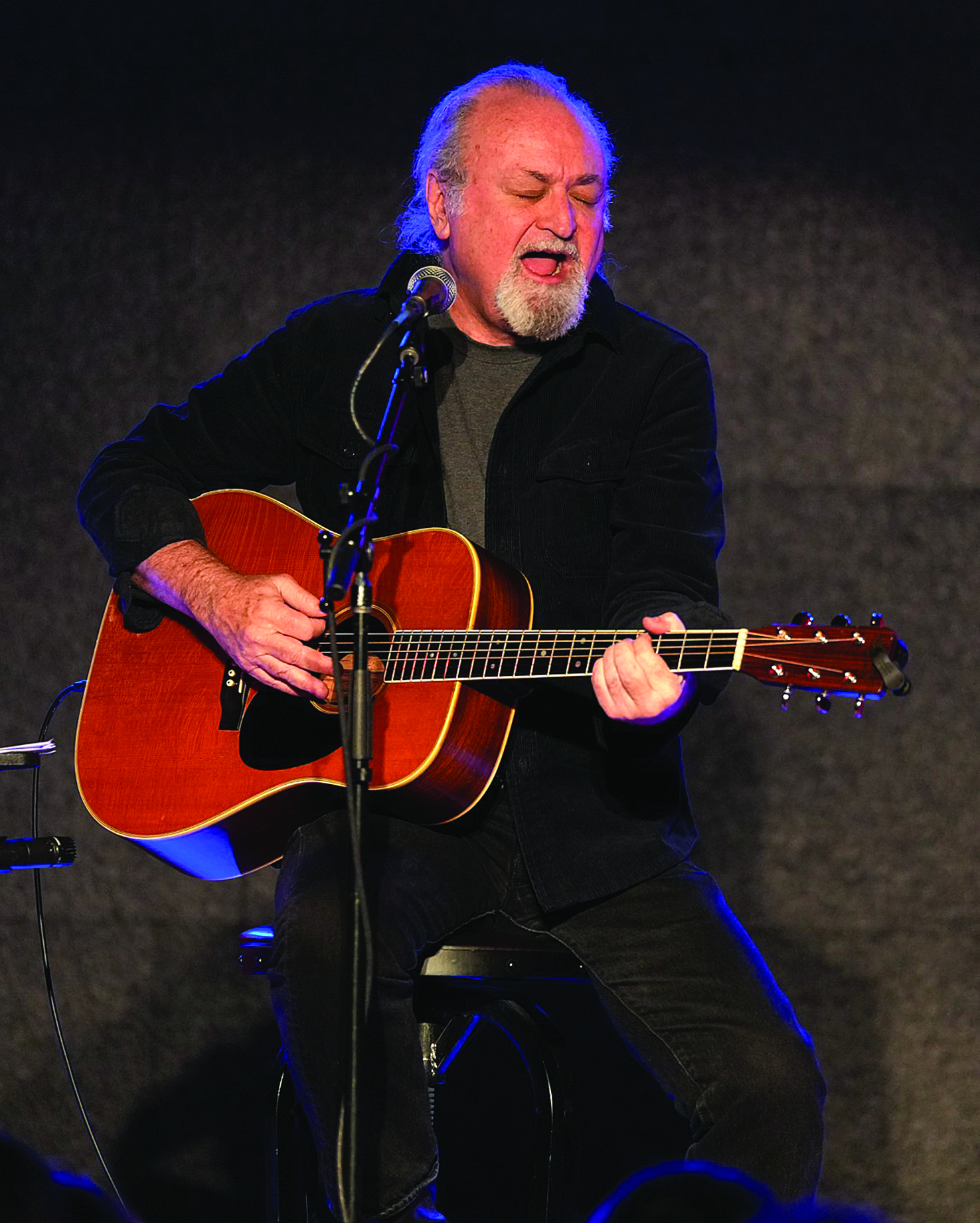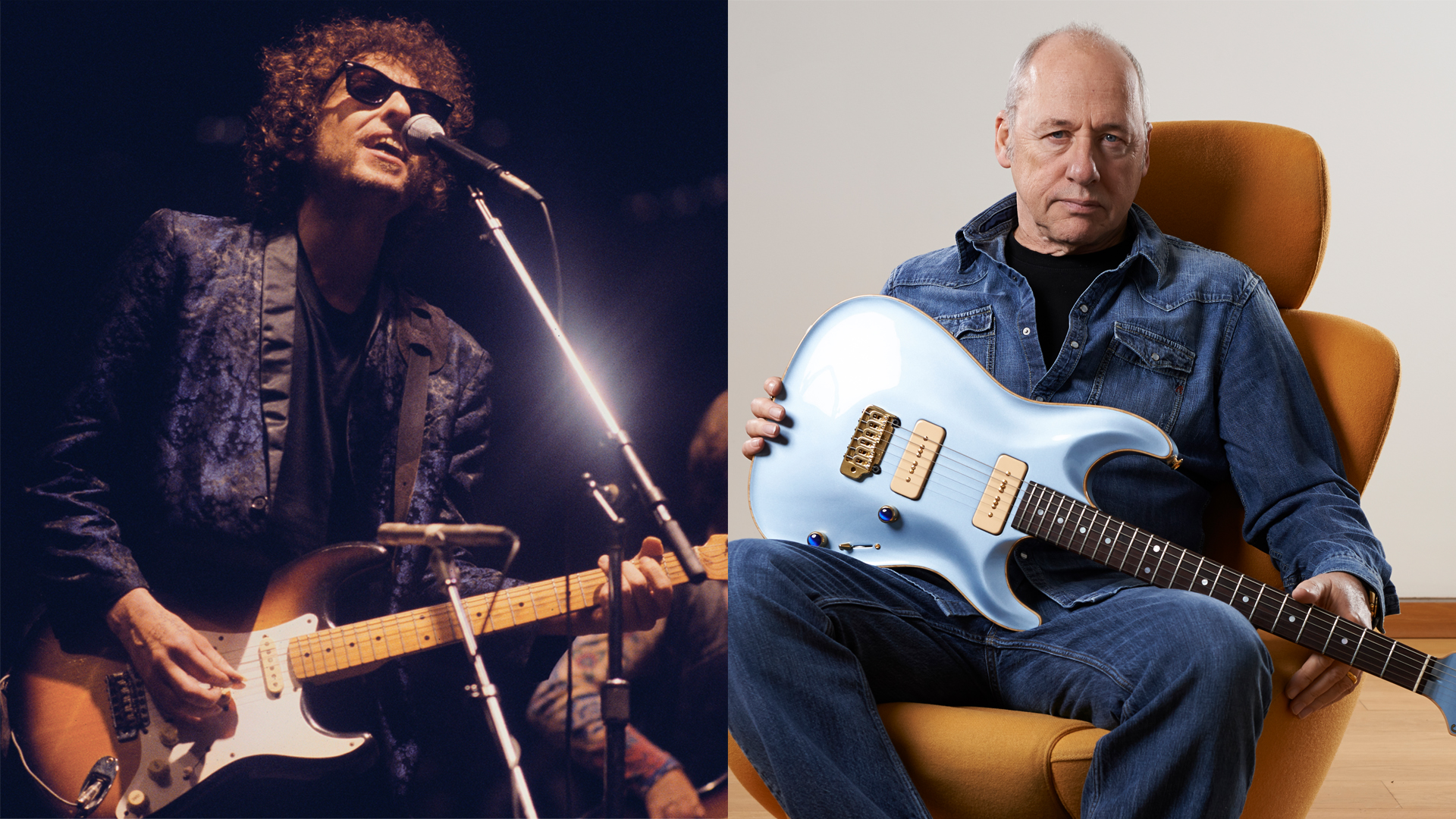“When I told my father I wanted an acoustic guitar, he was thrilled about getting me an instrument that wouldn’t deafen the family, like my Les Paul and Twin Reverb”: With a spunky vintage National resonator, Tinsley Ellis has finally gone acoustic
Though he often feels, when called to the stage to start a solo show, “like the executioner has arrived to take me to the gallows,” Ellis's new acoustic album, Naked Truth, finds the veteran guitarist right at home without accompaniment

Tinsley Ellis knows he’s “always been a pretty high-voltage electric” guitar player, at least since he was recording with the Heartfixers back in the early ’80s, and certainly during the 36 years since he signed with Alligator Records as a solo act. But the idea of a solo acoustic album – which he released in February as Naked Truth – has been in Ellis’s head for almost all that time.
“I’ve been threatening to do it for almost 30 years,” he says from his home in his native Atlanta, where Ellis recorded the 12-track collection of originals and covers using his 1969 Martin D-35 and a 1937 National O Series steel guitar, which he plays with a brass slide. “On a couple of occasions, I had asked [Alligator founder] Bruce Iglauer what he thought of the idea of me doing an acoustic album. He goes, ‘Well, those kinds of things work much better when the artist is famous.’
“I said, ‘Everything works better when the artist is famous,’” Ellis adds with a laugh. “So I finally just did it on my own.”
As with many creative endeavors of the past few years, the pandemic was the impetus.
“I was so afraid of losing my chops that I turned my studio into my day job,” Ellis explains. “I went downstairs and began writing and recording every morning, starting at six or seven, with a cup of coffee, of course. The studio became my new instrument.
“I did a lot of these acoustic songs, and I would collect them in a file, and I started looking at that file going, ‘Y’know what? I’ve got more than enough songs for an interesting acoustic album!’ I think the allure was just to do something different.”
Ellis also notes that a great many of his electric songs over the years were written on acoustic guitar in hotel rooms while on tour. The big difference this time was keeping them acoustic rather than translating them into electric trio, or larger, settings. The acoustic sound, Ellis explains, is what really snared him during his woodshedding.
“I had two totally different sounds, acoustically,” he says. The Martin was a high school graduation gift from his father.
“When I told him I wanted an acoustic guitar, he was thrilled with the possibility of getting me an instrument that wouldn’t deafen the family, like my Les Paul and Twin Reverb I played all the time,” Ellis recalls.
When they bought it, he was told the guitar was made in the last year Martin used Brazilian rosewood. Ellis acknowledges that the information “may have been a hard sell. I can’t tell you I could hear the difference, but he made me feel like I was really getting something special, so that completed the sale.”
He bought the National, meanwhile, later in his career, at Willies American Guitars in St. Paul, Minnesota, “after browsing for one for a decade.” He chose it from a circle of five set on the store’s floor.
“It had the most growl to it,” Ellis says of the guitar, which started life with a square neck that was swapped out, but is “still the largest guitar neck I’ve ever had. Recently, somebody at a show came up and said, ‘Y’know, Keith Richards had a resonator like that.’ I thought that was an interesting fun fact.”

Iglauer checked off on the idea for Naked Truth and weighed in on its direction, primarily by urging Ellis to write more of his own songs for the set.
“Initially, I had an equal amount of covers and originals, and he steered me toward doing originals,” says Ellis, who penned all but the three covers of Son House’s Death Letter Blues, Willie Dixon’s Don’t Go No Further, and the Leo Kottke instrumental, The Sailor’s Grave on the Prairie.
“I think that is probably what made the record pleasing, at least to my ears. If you go in and do, say, a Freddie King song, you’re always gonna be judged against the original and you’re never really gonna come up with your own voice as much as you would when you write the material and go into it with no preconceived notions.
“I also didn’t want to just make a blues album where I was parroting the sound of Son House or Muddy Waters or Fred McDowell. I wanted to add my other love, acoustically, which is the folkier side: Leo Kottke, dare I say Stephen Stills, Jimmy Page open-tuning things. So it’s kind of a blues and folk album, and it’s kind of a slide National steel and a wooden-body guitar album.”
Those influences were nevertheless in play as Ellis was finding his Naked Truth.
“No matter what kind of music I’m playing, whether it’s slow or fast, major, minor, acoustic, I like to have an edge,” he explains. “I really love the stuff that Son House played, watching those videos of him where his picking arm is just really flailing. Bukka White, the same thing. And carrying into rock music there’s Pete Townshend, one of the best right hands ever in guitar.
“So there’s a lot of right-hand work on the album, which is good because I’ve got six different tunings on this record, so there’s a lot of open-string usage. That means the right hand needs to be doing more interesting stuff.”
The National steel songs on Naked Truth are all finger-picked, Ellis says, as is Easter Song, a quick, gentle closing instrumental played on the Martin. On the tune Alcovy Breakdown, he says, “There’s that sort of Stephen Stills–influenced thing where I used the Drop D tuning so I get that real low drone on the open D string.”
For another instrumental, Silver Mountain, Ellis employs DADGAD tuning as a nod to Kottke and Page.
Over 40 years ago I asked John Hammond about playing solo. He said, ‘Tinsley, if you can do it, you should do it’
“There’s a whole lot of strumming on that,” he notes. “Then there’s some songs where I’m really bearing down, like Don’t Go No Further. I’m really trying to make it sound like there’s a bass player as much as I can.
"I mean, I got to watch Muddy Waters and Howlin’ Wolf play. I was able to sit at their feet, actually, and one thing I noticed is they really bore down when they played. Then about half the songs on the album have a pretty pronounced foot stomp in ’em – ’cause there’s got to be a beat.”

Ellis previously incorporated acoustic sets into his concerts, but last year he began playing all-acoustic shows, which he admits has been a challenge.
“Oh, it’s a whole different bag playing by one’s self. ‘Terrifying’ is a word that comes to mind,” he says. “I can’t rest on the bass and the drums. When they come and tell me it’s time to start the show, it feels like the executioner has arrived to take me to the gallows. But by the time the second song kicks in, it starts feeling right.
“Over 40 years ago I asked John Hammond about playing solo. He said, ‘Tinsley, if you can do it, you should do it.’ I think what he’s talking about is just the freedom to turn on a dime. If I want to, I can throw in a Bob Dylan or a Leo Kottke song. I do enjoy that aspect of it.”
Ellis plans to be doing those shows – what he calls his “two guitars and a car tour” – throughout the year in support of Naked Truth. He also talks about what he’d like “to build on for the next one,” implying another acoustic release, but he won’t commit to that – or anything specific – at the moment.
“I continue to write, electrically, too, so who knows what I’ll do next,” Ellis says. “I’m gonna ride this one as long as I can.”
- Tinsley Ellis's Naked Truth can be purchased or streamed now.
Get The Pick Newsletter
All the latest guitar news, interviews, lessons, reviews, deals and more, direct to your inbox!
Gary Graff is an award-winning Detroit-based music journalist and author who writes for a variety of print, online and broadcast outlets. He has written and collaborated on books about Alice Cooper, Neil Young, Bob Seger, Bruce Springsteen and Rock 'n' Roll Myths. He's also the founding editor of the award-winning MusicHound Essential Album Guide series and of the new 501 Essential Albums series. Graff is also a co-founder and co-producer of the annual Detroit Music Awards.
"This 'Bohemian Rhapsody' will be hard to beat in the years to come! I'm awestruck.” Brian May makes a surprise appearance at Coachella to perform Queen's hit with Benson Boone
“We’re Liverpool boys, and they say Liverpool is the capital of Ireland.” Paul McCartney explains how the Beatles introduced harmonized guitar leads to rock and roll with one remarkable song











